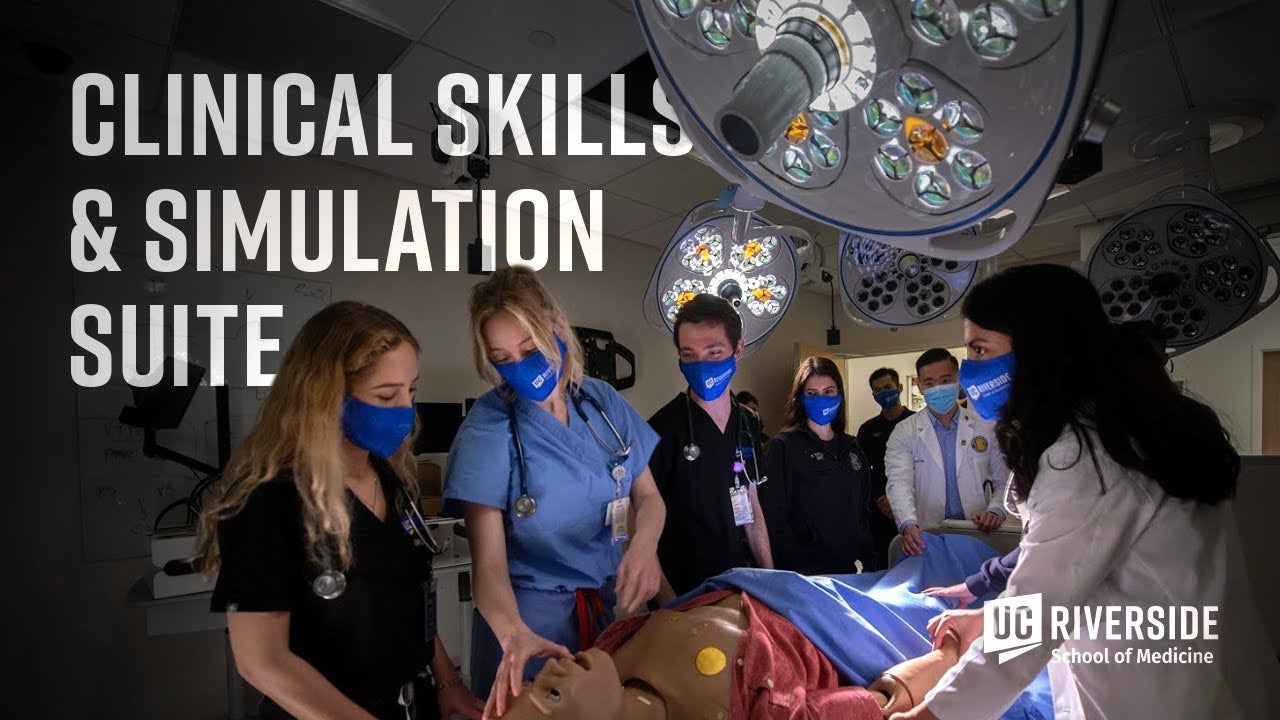With exam and specialty rooms featuring state-of-the-art technology, the new UC Riverside School of Medicine Center for Simulated Patient Care could easily be mistaken for a hospital wing.
That’s part of the goal of the center — providing medical students with as close to real-world conditions as possible to learn patient and clinical skills.
The 11,000-square-foot facility, located in the basement of Orbach Library, opened in late March after 11 months of construction. At almost 10 times the size of the old 1,300-square-foot space, the project represents a major expansion for the School of Medicine.
“The new center brings a significantly higher degree of realism to the scenarios and simulations,” said Christopher Miller, director of operations for the UCR SOM Center for Medical Simulation and Research. “The realistic scenarios and equipment allow for retraining and practice until one can master the procedure or skill.”
The additional space allows the school to tailor each room to a particular type of care, he said.
The facility includes 16 clinical exam rooms; four classroom spaces that seat 20; a 600-square-foot simulated operating room; and a 550-square-foot Ob/Gyn/neonatal intensive care unit suite.
The exam rooms will be used by first- through third-year students to learn standardized patient care by interviewing actor patients and diagnosing their symptoms. Each room is equipped with ultrasound, while the corridors feature electronic charting stations where students can enter a patient’s medical record immediately after examining them.
The center can even pipe in hospital sounds so students can learn how to actively and selectively listen, Miller said.
Students also work with 12 sophisticated mannequin-based patient simulators that can mimic breathing, chest movements, lung sounds, a human pulse, and pupils constricting. One of the mannequins can be used to train students for birthing complications.
The operating room, featuring an operating table in the center and space for nurses and anesthesiologists, is one of only two dedicated simulated operating rooms in the Inland Empire, Miller said.
The entire center features extensive video recording capability with two cameras in each exam room providing a 360-degree view. The operating room has eight different cameras, including one with a fisheye lens.
The cameras allow instructors to record each scenario for reviewing and testing and give students a chance to see and evaluate their own performance, said Dr. Rebeca Gavan, co-director of Clinical Skills, director of Case Based Learning, and faculty director of the Standardized Patient Program.
“We want to make sure we can see all angles of what the learner is doing, so we’re able to give them feedback about whether they placed the stethoscope in the right place or that they did indeed palpate and feel where they were supposed to,” she said.
Abigail Burr, a second-year medical student, said seeing the new center was exciting for her and her fellow students. She was impressed by the expanded, focused space, noting the operating room is representative of an actual surgical center.
“I believe the new simulation center will only further enhance our already awesome clinical skills instruction and allow more opportunities for simulated clinical scenarios,” she said.




